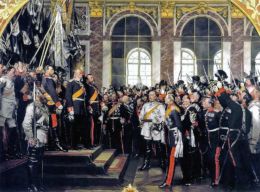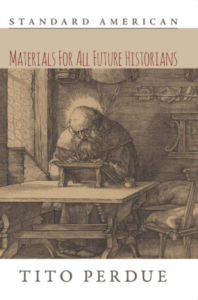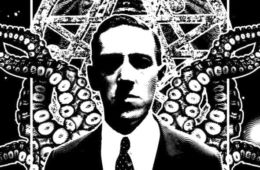Western Civilization Is Destroying Its Historical Heritage, Part V

Anton von Werner, The Proclamation of the German Empire (1885). The rise of the German Empire coincided with the rise of German historicism. Both presented a new challenge to British and French world domination.
2,932 words
Part 5 of 7 (Part 1 here, Part 4 here)
German Historicism: The Defeated Alternative to Liberal Progressivism
Peter Watson’s comprehensive book of over 900 pages, The German Genius: Europe’s Third Renaissance, The Second Scientific Revolution, and the Twentieth Century (2010), demonstrates that from 1750 to the 1930s Germany was the dominant intellectual force in Western civilization. Among its 42 chapters you will find one with the title “German Historicism: A Unique Event in the History of Ideas.” The educated layman invariably identifies Germany’s greatest achievements with philosophers, musical composers, and scientists—never hearing about the highly original Historicist School which peaked in the 2nd half of the 19th century. One of its members, Friedrich Meinecke, believed that this School was Germany’s greatest contribution to Western thought since the Reformation, “the highest stage in the understanding of things human attained by man.” This School finally provided Europeans with a “historical consciousness” by explaining how humans are historically conditioned, not within a history conceived as a linear operating according to universal “scientific” laws, but as members of a particular land, nation, and culture. There is no universal “man.” Humans can only be understood in terms of their unique history and customs. Historians can’t transcend their own time and culture, but should be aware that their approaches to history reflect the varying cultural framework within which they write.
German historicism is also known for its “scientific” insistence on the critical analysis of documents, commitment to factual accuracy, as well as for raising to a higher level the professionalization and specialization of history as a university discipline—while arguing that the methods of the natural sciences (as Vico began saying) are inadequate for the study of historical phenomena. The historical sciences deal with purposeful humans and with unique and unrepeatable events, whereas the natural sciences deal with phenomena devoid of intentionality and characterized by recurrence. History is a continuous flux of unpredictable events, and although one can study the nature of institutions and the inner structure of particular cultures and religions, the peoples of the world each possess their own culture, language, and trajectories, unamenable to schematic theories. Insofar as historians become aware of their historical situation, they can learn to leave their own present context to understand the unique context of other peoples at other times. This is known as hermeneutics, that is, the art of interpreting the historical contexts of events in the past and in other cultures. The idea of progress is wrong for it imposes one standard of development.
Today, in the academic world, it is almost a truism to say that we are historically conditioned. Marxists love to say that we are conditioned by our social relations of production, and multiculturalists love to say that each culture should be judged on its own terms rather than according to “Eurocentric” criteria. German historicism thus appears to have been incorporated into the acceptable tradition of Western liberal historiography. But be careful. Claims about “the historicity of all knowledge and values” amount to no more than a domesticated version of German historicism cleansed of its deepest and most controversial ideas—to be easily fitted within the liberal idea of progress, which currently consists of a “right wing” side that believes in the truthfulness of capitalist and scientific growth, and a “left wing” side that relativizes Western values within a multicultural setting inside the West deemed to be superior for its inclusion of non-Western peoples. Herder (1744–1803), for example, one of the earliest historicists, has been thoroughly re-interpreted by Western liberals, Isaiah Berlin and Charles Taylor, as one of the founders of multiculturalism, even though Herder actually called for the appreciation of the distinctiveness of each nationality and the ways in which each culture can strive for its own perfectibility and contribute thereof to the fullness of humanity. He rejected attempts to make Germany adopt the “universal” values of the French enlightenment. He was a cultural nationalist who cherished Germany’s heritage, folkways, and identity.
What has been suppressed, or thoroughly rejected, about German historicism is that it was an expression of the particularity of German nationalism. Whereas nineteenth-century nationalism in France, Britain, and America came along with liberal “universal values” about the “natural rights of man” and the sovereignty of the people, against monarchical and aristocratic traditions, German historicists advocated a nationalism with values culture-bound to German’s particular history. It also emphasized the priority of the freedom of Germans as a people over the rights of abstract individuals. The historicist rejection of the universalist pretensions of Enlightenment liberalism did not amount to a rejection of what Europeans had achieved in history. The same German historicists who rejected the liberal idea of progress were also the most emphatic in arguing that humans are deeply historical beings, that the laws of a people, their values, and their conception of truth, reflect the unique history and traditions of each region or race. The Germans after the 1850s were the most advanced Europeans in science, technology, military power, levels of education, and culture generally. Essentially, German historicists were the first to posit that a nation can follow a different path to modernity in reaction to the Enlightenment path. German nationalism and geopolitical power in the mid-nineteenth century coincided with modernization. The difference is that the Germans wanted a path that would be balanced with its unique history, respect for aristocratic authority, together with a propertied and cultured middle class, working in unison with a powerful state acting as the common point of the Germans, with the highest capacity for independence and strength among the competing powers of the world, rather than a state acting at the behest of a dominant capitalist class pursuing its own interests, or at the behest of a democratic mob easily controlled by private companies. To be somebody a people must have a strong state that is independent of other states. At the same time, Germans during this period enjoyed considerable individual liberties, universities open to merit, a constitutional monarchy, rule by established procedure, a high degree of economic freedom, and a truly dynamic cultural atmosphere which encouraged the full development of individuality in culture. German historicists believed in a society in which the individual was free while being simultaneously integrated into the German nation. They did not want a contractual society consisting of atomistic individuals pursuing their private happiness in a state of alienation from the historical heritage of Germany.
German historicism was a profound questioning of the idea of progress, nevertheless. It rejected the notion that there is meaning in history ascertained as a process of increasing rationality, happiness, and freedom. Historians can learn to see how different epochs are connected to each other and gain a wider perspective of history beyond their time and place, but it is a mistake to think that prior epochs or peoples exist “entirely for the sake” of future epochs, or that there is a seed in the past that contains the future, or that history is heading to a future bliss of complete rationality and happiness. There is no rational end but a multiplicity of ways of being. As Humboldt said, a man tends to express the “highest degree of strength and inner unity,” the highest dignity, precisely at times when he is also “closest to misery”—not when he is closest to happiness and comfort. Men have expressed their potentiality, the “Best and Highest,” at many moments in history and in different cultural settings. It was the view of German historicism as well that history is not a process of rising perfection. Man’s rationality exists within a “total soul” characterized by irrationality, will, and poetic imagination. To treat man as a rational animal is to cut him off from the forces of nature, which are likewise the sources of his creativity. There are many elements in history that cannot be explained in terms of rational factors, and there is much in nature that is vitalist, elusive and hidden from reason. The truth is sometimes better apprehended in a poetic or artistic manner. A historian should be thorough in the use of sources, but historical writing involves imagination combined with the ability to enter into the world of the past.

You can buy Tito Perdue’s Materials for All Future Historians here.
Can you see why Anglo liberalism was determined to defeat German historicism?
I have identified very few members of the German historical school other than Ranke and Humboldt, without addressing any of their particular books. Ranke’s historical writing alone amounted to over sixty volumes. German historicists were generally prolific, and included some very important philosophers of history, such as Wilhelm Dilthey (1833–1911), author of The Critique of Historical Reason, an attempt to “investigate the nature and conditions of historical consciousness.” He knew he was caught in “a seemingly insoluble contradiction” claiming that, on the one hand, the first condition for “the possibility of historical science” lies in knowing that one’s perspective is historically conditioned by the finitude of one’s time and place, which means that every view is historically relative, while, on the other hand, arguing that this historical awareness “has liberated the human spirit from the last chains which natural science and philosophy have not yet turn asunder,” by allowing humans to finally realize that a mind that is aware of its historical finitude is a mind that can provide us with a proper knowledge of social and human realities. Dilthey, however, was also influenced by Auguste Comte’s progressivist argument that in history we see the liberation of the human intellect from religious mythologies and metaphysical assumptions leading to the development of the natural sciences and proper methodologies for the study of history in a factually accurate manner, though he could not accept the scientific idea that reason could stand above historical time to reach absolute truths.
As you can see, this line of historical reasoning triggered countless debates about the possibility of historical objectivity, the relativity of truth, whether there are laws of development in history that could be studied using the methods of the natural sciences, or whether we could, through a comparative historical approach, reveal characteristics that are common to all societies across time, based on human nature, such as evolutionary Darwinians argue today, allowing us to reach a certain cross-cultural objectivity. Johann Gustav Droysen (1808-1884), the founder of the “Prussian School” of historians, also wrote about these issues in his Outline of the Principles of History. He actually agreed with Thomas Buckle that history has a lawful, meaningful, and progressive pattern, while still arguing that the way to understand the past is not through the construction of causal explanations akin to the natural sciences, but through the apprehension of the “acts of volition” of human actors, and how these acts are part of a wider totality and a ceaseless movement characterized by progress rather than periodic repetition, as we observe in nature.
Two things are certain: 1) there were still no debates whatsoever about the nature of historical knowledge outside the West, this late in history. The historiography of the non-western world remained the same as it had always been: annalistic in form, though Western ideas were starting to reach them. 2) What Western historians today call “the crisis of German historicism,” in lieu of these insurmountable debates about the historical relativity of truth, has obscured the fact that the true crisis faced by this school, leading to its domestication and denaturing into a safe theory about how we are historically conditioned, is the suppression of its powerful critique of liberalism and its defense of a unique “collectivist” path to modernity by Germany. The crisis was less a result of these epistemological conundrums than a result of the defeat of Germany in the First and Second world wars. Droysen said that “[t]he creation of German unity required the presence of a power which could challenge other powers.” He stressed the importance of German national unity, not for the sake of creating an international order based on “brute force,” for he believed that this state had to be an ethical reality, but for the sake of defending the uniqueness of German history against the liberal attempt to impose a uniform order of nation states based on individual rights. The German nation was not reducible to a contractual arrangement by abstract individuals dedicated to private gain and happiness. Individual rights should not take priority over community ties. Germans had always existed within the natural communities of the family, the tribe, and the Volk—and also within “communities of ideals” based on their language, arts, sciences, and religion.
After the Second World War, Western historians reached the conclusion that the only nations founded on individual rights were progressive to the exclusion of “intolerant” German historicist ideas about the Volk. They argued that National Socialism and anti-Semitism had important roots in German historicism. Germans needed a thorough re-education in Enlightenment progressivism. The domestication of German historicism began in earnest during the 1960s in Germany. The contributions of this school to the professionalization of history, its argument that the primary aim of historical narrative is to reconstruct events in their unique individuality, together with its claim that history deals with human intentionality, which is irreducible to the methods of the natural sciences, were happily integrated into the accepted liberal historiographical tradition. But the historicist notion that Germany’s “authoritarian” path to modernity constituted its own contribution to the development of the “potentiality of humanity” at a given place and time, was utterly rejected—in light of “the catastrophic course of German politics in the first half of 20th century.
These words come from George Iggers, who fled Germany with his family in 1938, author of a very solid book, The German Conception of History (1968), and, more recently, Historiography in the Twentieth Century (2005). According to this latter book, a “younger generation of historians . . . trained academically after 1945” and “closely linked in their eagerness to confront the German past critically and their commitment to democratic society,” turned to the social sciences (away from the historicist preoccupation with diplomacy, the centrality of the state and political history) to explain why German historians had surrendered “their liberal convictions during the process of German unification under Bismarck.” The question in the air was whether German expansionist policies from the Wilhelminian years to the Nazi period could be understood within the framework of the authoritarian institutions created in Germany in the 1800s. Fritz Fischer was the first to propose an answer in Germany’s War Aims in the First World War (1961), now considered a classic work of scholarship among countless books published on the origins of WWI. His thesis was not that Germany’s unsurpassed economic expansionism between 1870 and 1914 incited the elites to pursue an aggressive foreign policy. Such an argument would have remained within the framework of Thucydides’ no blame view that the passion for power among leaders is the underlying motivation in geopolitical relations. In the new world of liberal internationalism, Germany needed to be blamed on ideological grounds. Fisher’s aim was to show that Germany was aggressive because its “conservative leadership” had “retarded democratisation.” Immanuel Geiss, his student, would push this thesis further, or in explicit terms, in his book, July 1914: The Outbreak of the First World War. Selected Documents (1967): “The determination of the German Empire—then the most powerful conservative force in the world after Czarist Russia—to uphold the conservative and monarchic principles by any means against the rising flood of democracy, plus its Weltpolitik made was inevitable.”
It was Hans-Ulrich Wehler, the most influential German historian of the post-war era, who explicitly argued that the “catastrophic course” of twentieth-century Germany was rooted in its incomplete modernization and retention of “autocratic traditions.” By applying the social sciences, Weber’s political sociology, Marx’s class conflict analysis, and American modernisation theory (which held that industrialization naturally engenders political democracy), Wehler concluded that Germany’s path to modernity had been incomplete in that its “progressive economic modernization” was not accompanied “by a modernization of social relations and politics.” The central aim of historical studies should be to show how economic and social structures are modernized, and how politics and culture should be modernized in a democratic direction. The Guardian, for Wehler’s obituary in 2014, notes that he fought against “inequality in modern Germany…against racism and Holocaust denial, and much more besides.”
A major influence upon Wehler was the Frankfurt School’s conception of “Critical Theory” as interpreted by Jurgen Habermas, with whom “he remained intellectually close for the rest of his life.” It was Habermas view that the Enlightenment should be seen as an “emancipatory project” with universal ideals that should serve as a normative criterion for the critical examination of past and present societies. There should be no dichotomy between scholarship or science and politics and morality. Historians should offer explanations for why things happened as well as nurture progressive values. The morality of the nationalism of the historicists was “at the conventional level,” that is, limited to the values and interests of particular groups and nationalities. Germany needed to embrace a “post-conventional” morality rooted in reason rather than in nationality, for the welfare of humanity. Wehler, and his colleague Jurgen Kocka, evinced a strong confidence that civil liberties, socialist welfare, and cultural pluralism were compatible with capitalist modernization. For Kocka the collapse of communism in the 1990s, and of Nazism before, demonstrated the superiority of Western liberal modernization, and its capacity for improvement. This Western-centrism would soon be challenged as not progressive enough.
This essay was reprinted from The Postil Magazine by permission of the author.
* * *
Counter-Currents has extended special privileges to those who donate $120 or more per year.
- First, donor comments will appear immediately instead of waiting in a moderation queue. (People who abuse this privilege will lose it.)
- Second, donors will have immediate access to all Counter-Currents posts. Non-donors will find that one post a day, five posts a week will be behind a “Paywall” and will be available to the general public after 30 days.
- Third, Paywall members have the ability to edit their comments.
- Fourth, Paywall members can “commission” a yearly article from Counter-Currents. Just send a question that you’d like to have discussed to [email protected]. (Obviously, the topics must be suitable to Counter-Currents and its broader project, as well as the interests and expertise of our writers.)
To get full access to all content behind the paywall, sign up here:
Paywall Gift Subscriptions
 If you are already behind the paywall and want to share the benefits, Counter-Currents also offers paywall gift subscriptions. We need just five things from you:
If you are already behind the paywall and want to share the benefits, Counter-Currents also offers paywall gift subscriptions. We need just five things from you:
- your payment
- the recipient’s name
- the recipient’s email address
- your name
- your email address
To register, just fill out this form and we will walk you through the payment and registration process. There are a number of different payment options.



